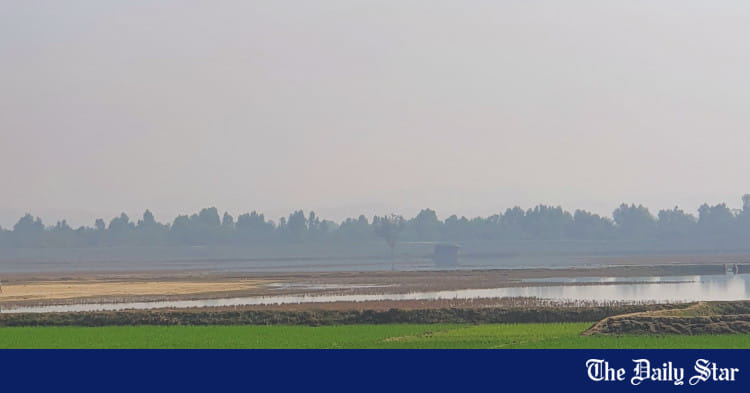Saif
Senior Member
- Joined
- Jan 24, 2024
- Messages
- 16,790
- Likes
- 8,152
- Nation

- Residence

- Axis Group


Coast Guard, BGB on alert
Amid fear of a fresh influx of Myanmar nationals, Bangladesh border and coast guards have stepped up vigilance along the Myanmar border, including the Naf river.
Coast Guard, BGB on alert
Locals fear fresh influx of Myanmar nationalsAmid fear of a fresh influx of Myanmar nationals, Bangladesh border and coast guards have stepped up vigilance along the Myanmar border, including the Naf river.
Members of Bangladesh Coast Guard and border forces were seen patrolling the border area over the last few days, as locals say the situation in Myanmar was still tense and more Myanmar nationals, including the Rohingya, may attempt to cross the Naf anytime for shelter.
Last week, both forces intercepted several incoming boats with Myanmar nationals and redirected them towards Myanmar amid weeks-long fierce fighting between Myanmar troops and Arakan Army (AA), an insurgent group that seeks to establish a separate state in Rakhine.
Since last Tuesday, at least 100 Rohingyas were pushed back as they attempted to cross into Bangladesh through the Naf near Teknaf ferry terminal in Cox's Bazar, Coast Guard sources said.
Lt Commander Lutfur Lahil Majid, head of Coast Guard's Teknaf station, said they are on high alert in the prevailing situation.
Although there has been no report of any large-scale Rohingya influx since fighting began in recent weeks, at least 330 members of Myanmar army and border police fled the conflict and took refuge in Bangladesh.
Dhaka and Naypyidaw are now discussing the process of their repatriation, which will be finalised in two to three days, said Chattogram Divisional Commissioner Md Tofail Islam.
Separately, Bangladesh law enforcers arrested 23 Myanmar nationals who entered Bangladesh with weapons, said Chattogram Range Deputy Inspector General (DIG) Noore Alam Meena.
A court in Cox's Bazar yesterday placed 22 of them on police remand for three days each. The remand petition for another Myanmar national named Sadek was rejected on health grounds.
"A case has been filed after arresting 23 people with weapons. Investigation is underway and legal action will be taken for trespassing," said Noore Alam.
He added that the situation on the other side of the border seems "relatively peaceful" at the moment.
"Border Guard Bangladesh is keeping an eye on the situation," he said.
Both Tofail and Noore Alam visited Ghumdhum border area yesterday.
Noor Ahmed Anwari, chairman of Whykong Union of Teknaf, said they heard intermittent gunshots across the border yesterday morning. According to him, the ongoing fighting may create a situation where vulnerable Rohingyas and other Myanmar nationals may attempt to seek shelter in Bangladesh.
However, situation along Tumbru and Ghumdhum in Naikhonchhari upazila of Bandarban, and Rahamater Beel in Ukhiya upazila, and Lamba Beel, Whykong, and Hnila in Teknaf of Cox's Bazar was relatively calm yesterday.
Meanwhile, the education ministry has decided not to use Ghumdhum High School as an SSC examination centre in the wake of the fighting. The process to shift this centre is underway and it will be completed soon as the exam starts on Thursday, said Chattogram Divisional Commissioner Tofail.



